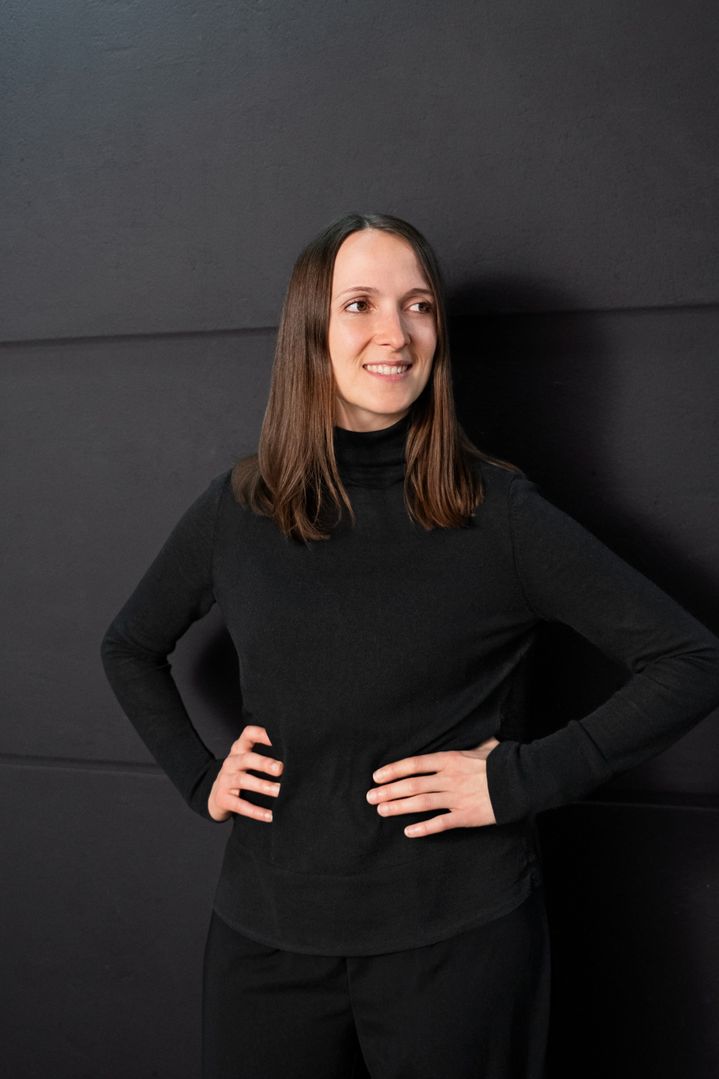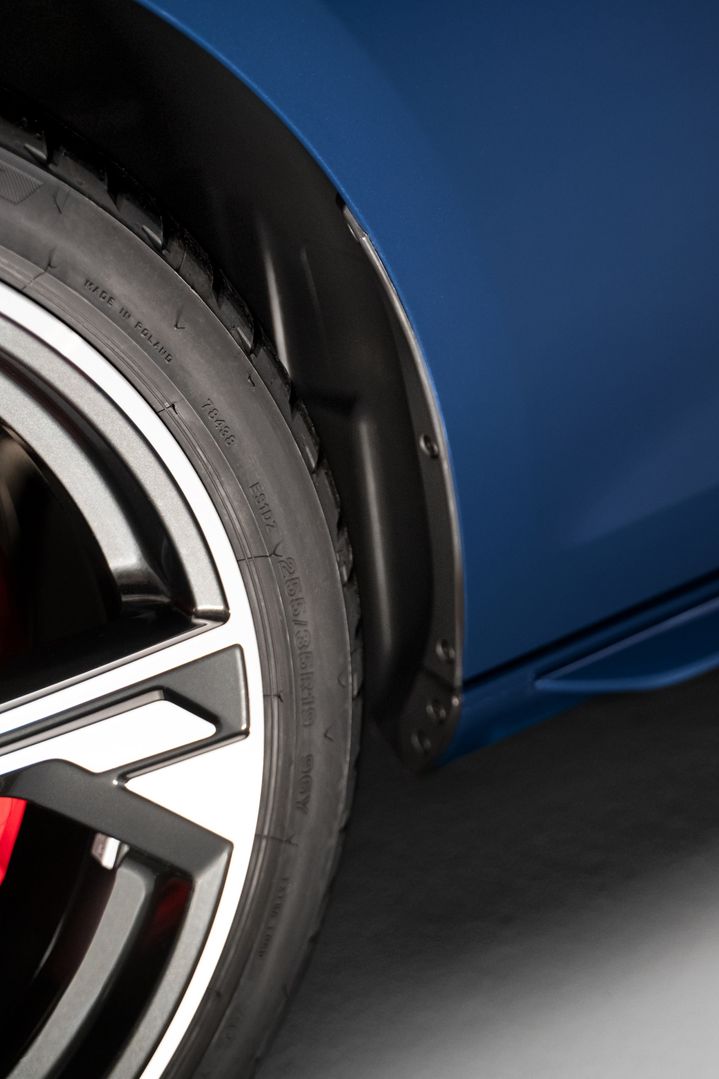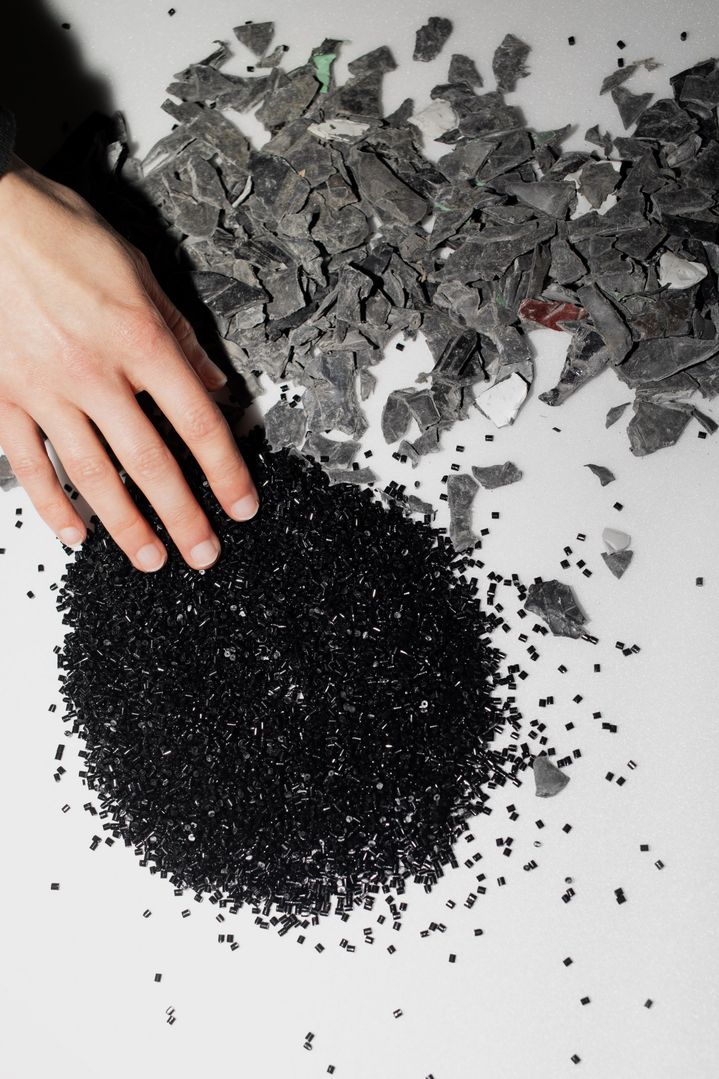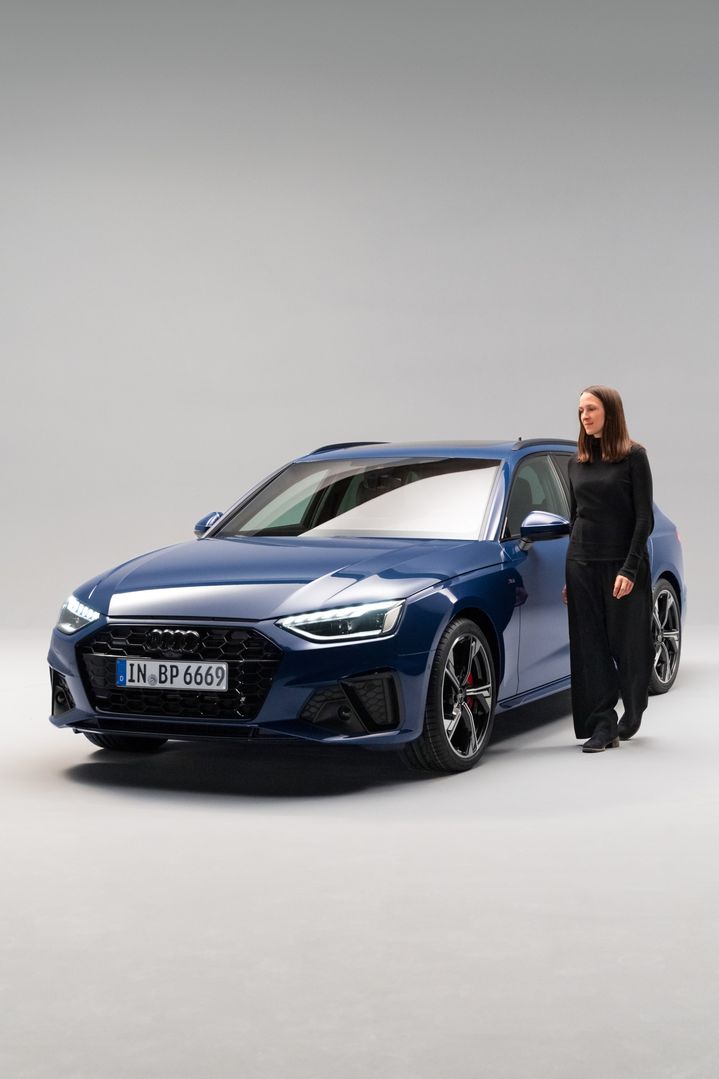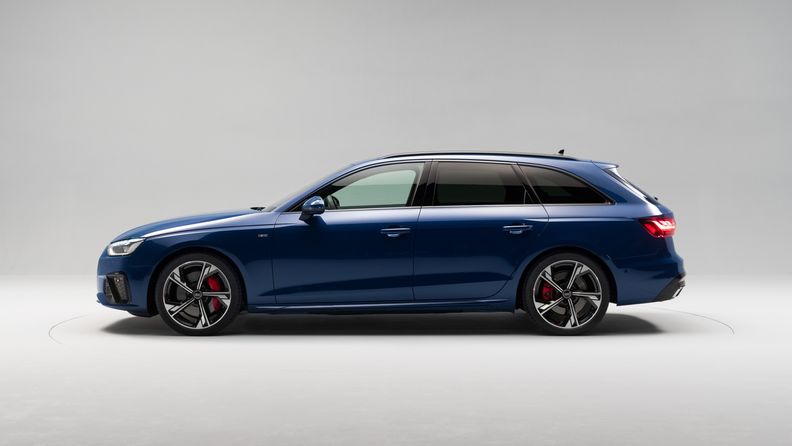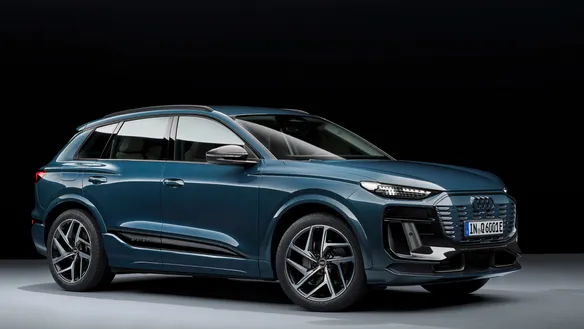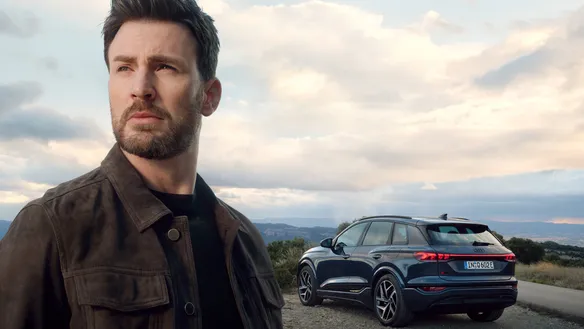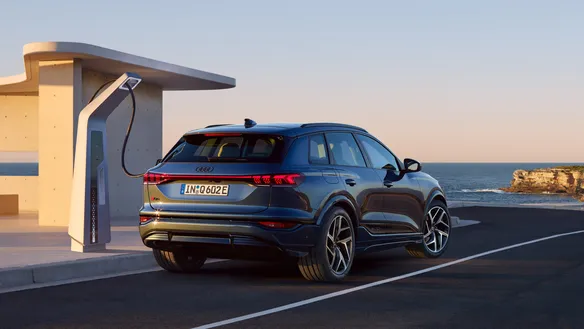A matter of personal importance
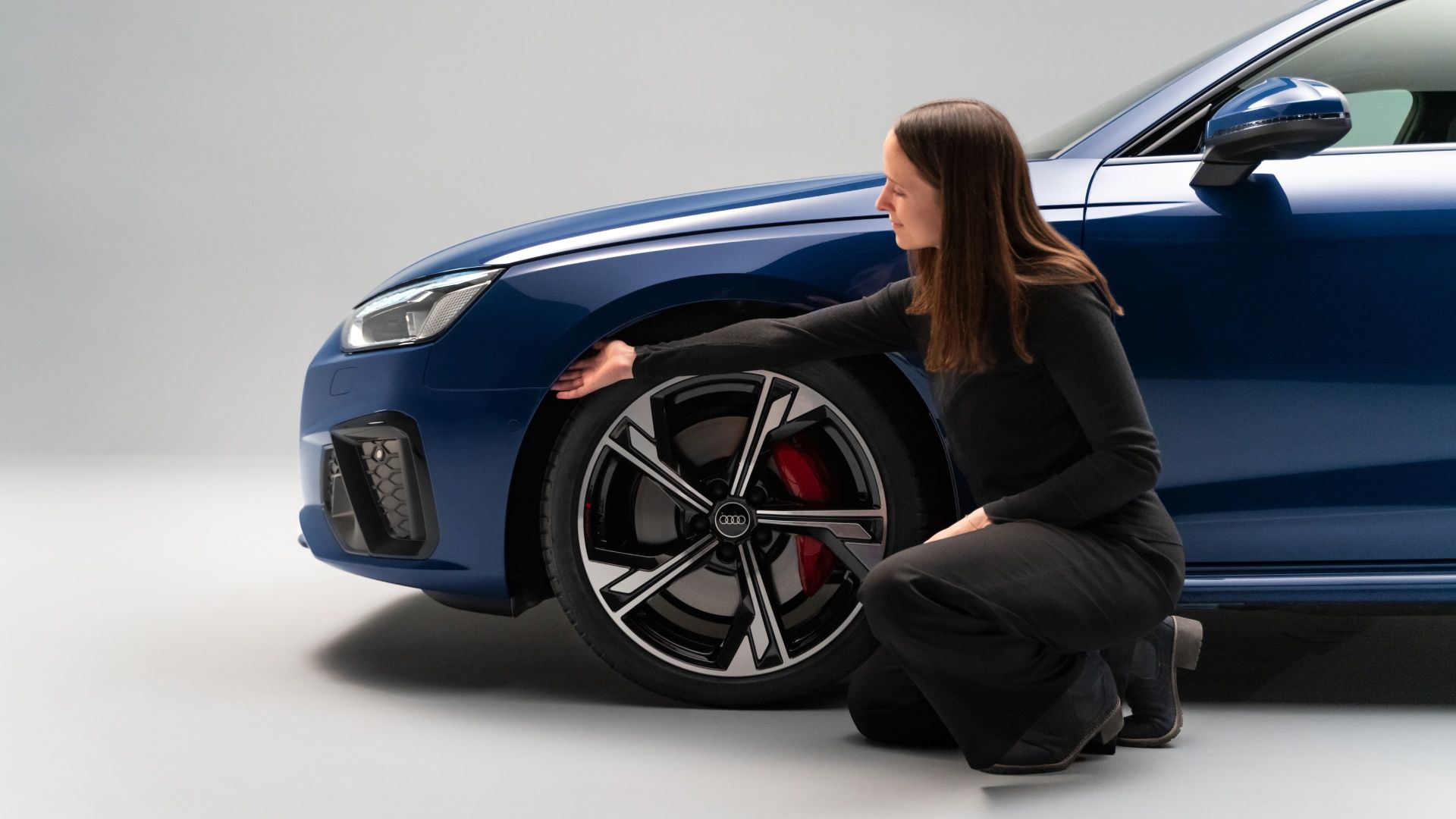
Audi A4 Avant: Fuel consumption (combined) in l/100 km: 8.1–4.7CO₂ emissions (combined) in g/km: 183–124CO₂ emission classes: G–D
Audi A4 Avant: Fuel consumption (combined) in l/100 km: 8.1–4.7CO₂ emissions (combined) in g/km: 183–124CO₂ emission classes: G–D
The Audi A4 Avant in front of which Jutta Schoberer is standing has one outstanding feature. One that sets it apart from many other current Audi models. For a while, at least. “The wheel arch liner on this Audi A4 Avant shows very nicely that a circular economy is possible,” says Schoberer, for whom this topic is a matter of personal importance. What’s installed there between the wheel and the fender is made of plastic waste that has been reprocessed and turned into a recyclate. “It’s important to point out that it’s plastic from end-of-life vehicles,” Schoberer specifies.
Audi A4 Avant: Fuel consumption (combined) in l/100 km: 8.1–4.7CO₂ emissions (combined) in g/km: 183–124CO₂ emission classes: G–D
Audi A4 Avant: Fuel consumption (combined) in l/100 km: 8.1–4.7CO₂ emissions (combined) in g/km: 183–124CO₂ emission classes: G–D
“The wheel arch liner shows very nicely that a circular economy is possible.”
MaterialLoop
With the MaterialLoop cooperation project, Audi is taking the next step towards closing material cycles within the automotive industry. The focus is on materials such as steel, aluminium, glass and plastics. Together with 15 partner companies from research, the recycling sector and the supplier industry, they examine the reuse of so-called post-consumer materials from end-of-life vehicles to produce new vehicles. The project is part of Audi’s circular economy strategy and provides valuable findings for implementation in practice.
Currently, many of the plastics used still end up in thermal recycling. A situation Audi and Jutta Schoberer herself want to increasingly change together with partner companies. “Getting better at recycling plastics from end-of-life vehicles in particular is my personal concern. It is necessary to close the material cycles that are so essential worldwide.” The wheel arch liner is a start, but, according to Schoberer, other components with even higher requirements in terms of appearance, UV stability or crash relevance are already being tested.
This is precisely what Jutta Schoberer does. In technology and buildability validation and across projects such as MaterialLoop, she and her colleagues are pursuing a clear goal: “We help develop more recyclable component concepts and secure them for series production.” Nearly 15 years ago, she first completed an apprenticeship in model making at Audi, then went on to study plastics technology. Schoberer has been back at the company since 2019. “I’ve been involved with materials and their properties for a long time, and recycling, too, has become very important to me. I’ve personally spent the past few years on working on ways to reclaim and reuse plastics at the end-of-life of vehicles.”
Customers wouldn’t see any difference. The components, Schoberer emphasises, would by no means be inferior in terms of quality – and yet they would become more and more sustainable. Various tests have been and are still being conducted on how to further sort the plastics and which recycling technologies can be used to upgrade them. “Material recycling always has top priority, as it requires the least energy,” says Schoberer. The plastic waste is first shredded. Then the granules are melted down, and finally a new shape is formed. This process requires so-called fractions that are as pure as possible. However, the necessary sorting of plastics has its technical limits. In order to still benefit from solutions for plastic waste, Jutta Schoberer is also working on physical and chemical recycling in addition to adapting the sorting process.
The path is becoming clearer: “We have already found first solutions to existing problems and continue to work on enabling the recycling and reuse of more plastics from end-of-life vehicles. Our tests and upcoming vehicle projects show that it is possible.” As is the wheel arch liner on the Audi A4 Avant.
